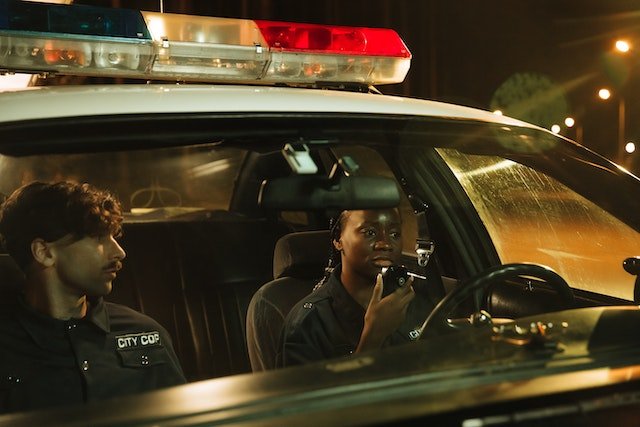Can Police Officers Smoke Weed Off Duty In California?
In California, lawful recreational use of marijuana by adults doesn’t cover police officers who are on duty since police departments typically have strict rules against the use of marijuana by staff, both in and out of obligation. Despite the legalization of the state, officers are frequently tested for drugs and are required to keep a professional appearance and adhere to the law in all instances.
Does A Police Officer Make Use Of Cannabis While Not On Duty

When determining whether an officer of the law can take cannabis while on duty, it’s essential to understand the complex legal framework that governs this question. The rules regarding cannabis differ between states and even from country to country. In states which have been legalized for medicinal or recreational use, police officers on leave may be in a legally acceptable situation. In those areas in which cannabis remains illegal, the situation gets more complex.
The Ethical Considerations
Ethics play a crucial part in discussions about police officers’ use of cannabis during their off-duty time. Police officers must adhere to a strict code of conduct in and out of the office since their actions reflect the law enforcement agency they are representing. Engaging in activities that are unlawful as well as morally debating, for instance, smoking cannabis when it’s banned, could lead to ethical issues and conflicts of conflict of interest.
Maintaining Professionalism and Public Perception
Law enforcement agencies are charged with enforcing the law and guaranteeing the public’s safety. Their actions significantly impact their perceptions of the police department within the community.
Thus, law enforcement officials should consider the possible repercussions of their non-work activities, which include cannabis use, on public perceptions of their professionalism and dedication to enforcing the law.
Legal Ramifications and Employment Policies
The usage of cannabis by law enforcement officers,, even when off duty, may be legal and impact their job status. In places where cannabis is not legal, officers could be liable to disciplinary action, which could include removal or termination if their use of cannabis is found out.
In addition, even in areas that have legal cannabis, there are law enforcement agencies that have specific rules that prohibit their employees from using cannabis because of concerns over impaired judgement and performance.
The Impact on Performance and Duty
One major concern regarding the off-duty marijuana use by police officers is the possible effect on their work and capacity to perform their job effectively. The use of cannabis can affect motor and cognitive abilities, as well as motor and decision-making capabilities which are essential characteristics for a law enforcement officer.
Even if the officer isn’t under effects of alcohol while in the field any lingering effects resulting from cannabis consumption could affect their performance.
Personal Freedom and Privacy
Advocates for the right of police employees to make use of cannabis on duty typically emphasize freedom of choice and privacy. They claim that law enforcement officers, like all citizens, should be given the freedom to make decisions regarding their lives without fear of being scrutinized. However, balancing between freedom of choice and the responsibilities that come with being a police officer remains a thorny issue.
Could California Be The Seventh State In The World To Protect Employees Who Smoke Marijuana

At present, six states have passed laws that give certain protections for employees who take part in off-duty legal activities which includes marijuana use. These states, which include.
Colorado which is California’s northern neighbor have realized the necessity of protecting the right of individuals to participate in legal activities outside of working hours without fear of being subject to unfair repercussions at work. Although California hasn’t yet taken this step however, it is witnessing a rising number of people that is urging for protections like this.
The Push for Employee Safeguards
Advocates say that protecting employees’ rights to use cannabis on their own time isn’t just an issue of individual liberty, but is also a vital step in reducing the stigma that surrounds the use of cannabis.
When perceptions of cannabis shift from negative perceptions to a more nuanced view that it is crucial that the laws governing employment evolve in line with the changing perceptions. The protection of employees who smoke pot sends the message that a person’s lawful actions, whether it’s the occasional joint or glass of wine must not affect their professional status.
Balancing Employer Concerns
As the campaign to safeguard smokers of marijuana gains momentum, it’s vital to be aware of that employers have legitimate issues. Safety, productivity, and ensuring a drug-free workplace are important factors employers should be aware of. The balance between employee rights and interests of the employer is a difficult job which requires careful consideration and cooperation.
Potential Legal Implications
If California was to join the ranks of states that are protecting employees who smoke pot, it would likely spark legal debates and possible issues. Making legislation that balances the rights of employers and employees is a challenging task. It is possible to raise questions about the protections available and the permissible limits of consumption of cannabis, and the degree to which employers are able to control and monitor employees’ behavior off duty.
Can A Medical Marijuana Certificate Make You Ineligible For Law Enforcement

Before we look at the possible consequences of medical marijuana cards on your career in law enforcement, we must begin by establishing a solid base on medical marijuana as well as its status in law. Medical marijuana, often referred to by the name medical marijuana, is the use of cannabis plant to treat ailments that are associated with a variety of medical ailments. The lawful status of cannabis is different between states, with certain jurisdictions allowing it for individuals who are under supervision by a health specialist.
The Complex Landscape of Law Enforcement and Medical Marijuana
Law enforcement agencies enforce the law and guarantee the safety of the public. In this regard, people who wish to join law enforcement are often subject to rigorous screenings of their background, mental tests and physical examinations. The existence of a medical marijuana card may complicate the procedure.
Background Checks And Drug Testing

Background check is an essential element of the application procedure. They are designed to reveal any previous criminal activities or connections that may hinder an individual’s ability to abide by the laws. While medical marijuana usage could be permissible in your particular state, you must acknowledge that federal law declares cannabis considered a prohibited substance. This distinction can cause problems for police officers.
In addition the drug test is an accepted procedure for candidates to be a law enforcement officer. Many agencies follow an anti-drug policy that prohibits drugs that are illegal, and even if medical marijuana could be legally acquired but its presence in the drug test could raise questions about the suitability of a person to be a candidate for the job.
Fitness-for-Duty Considerations
Law enforcement officers are often found themselves in high-stress and physically demanding situations. Therefore, law enforcement agencies place a high value on candidates in terms of physical and mental fitness. Medical marijuana usage could cause questions about a person’s capability to carry out their duties efficiently specifically in situations that require rapid decision-making in split seconds and physical strength.
Navigating the Path Forward
If you have medical marijuana cards and want to work in law enforcement, it’s important to approach the issue with cautious consideration.
Research Your State’s Laws
Start by researching thoroughly the laws regarding medical marijuana usage within your particular state. Know the rights and responsibilities given to those who have medical marijuana cards and any restrictions or possible conflicts with law enforcement positions.
Consult Legal Professionals
Legal counsel is a wise option to consider. An experienced attorney who has experience in medical marijuana, as well as law enforcement, can offer you useful advice and insights that are that is tailored to your particular situation.
Be Prepared for Transparency
When you apply for a position in law enforcement Honesty and transparency are essential. Make clear your medical marijuana card as well as the purpose for which it is intended when you apply. Reaffirm your commitment to completing the obligations of your job efficiently and ethically.
Consider Alternatives
If your law enforcement career pathway seems difficult because of the medical marijuana card you have look into other avenues inside the justice and criminal system. Jobs like criminal analysis, legal research or forensic science could match your ambitions and the circumstances.
FAQ’s
Can police officers smoke weed off duty in California?
While California legalized the recreational use of marijuana for adults, it’s important to note that federal law still classifies marijuana as a controlled substance. Police officers are subject to higher standards of conduct due to their role in enforcing laws, and their departments might have specific policies in place regarding drug use, even off-duty.
Are there any exceptions for medical marijuana use?
Medical marijuana use is legal in California for individuals with a valid medical recommendation. However, the same considerations about department policies and the potential impact on an officer’s ability to perform their duties apply. Some departments might have specific policies regarding medical marijuana use by officers.
Can an officer be disciplined for off-duty marijuana use?
Police departments often have strict codes of conduct and policies that officers must adhere to, both on and off duty. If an officer’s off-duty behavior, including marijuana use, is deemed to violate these policies or negatively impact their role as a law enforcement officer, disciplinary action could be taken.
Do police departments conduct drug tests on officers?
Many police departments have drug testing policies in place, both for pre-employment screenings and during an officer’s tenure. The frequency and circumstances of drug testing can vary by department. If an officer tests positive for marijuana use, it could result in disciplinary action, even if the use occurred off duty.
Can an officer be fired for off-duty marijuana use?
Depending on the circumstances, an officer’s off-duty marijuana use could potentially lead to termination. If the department’s policies explicitly prohibit marijuana use and the officer’s behavior is considered a violation of those policies, it could result in disciplinary measures, including termination.
Are there any legal challenges to these policies?
Legal challenges related to off-duty marijuana use by police officers can arise, often hinging on issues of privacy, employment rights, and legality of the substance at the state level versus federal law. Courts might need to determine whether an officer’s off-duty marijuana use is protected by law or if the department’s policies take precedence.


















